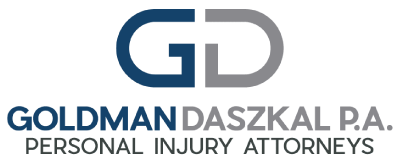
Are you one of the many Americans who enjoy the excitement and challenge of flying a drone?
Drones for Recreation
Over the last few years, the use of drones for personal interest and recreation has grown dramatically. In fact, the drone industry for consumer use alone is expected to hit $17 billion by 2020, according to a Goldman Sachs study. [1]
Commercial Use of Drones
Simultaneously, businesses are discovering a wide range of benefits using drones, also known as unmanned aerial vehicles (UAV), or unmanned aerial systems (UAS) drones. Industries ranging from agriculture to architecture are finding new opportunities to use drone technology for aerial photography and videos, mapping and analyzing land and structures, and delivering goods. This commercial market is expected to reach $13 billion by 2020. [2]
Military Drones
Finally, the largest segment of drone use is the military. Drones are becoming strong economical substitutes for manned military aircraft. The estimated market size for military UAS is expected to be $70 billion by 2020.[3] In total, the mushrooming market for UAS for all market segments will be close to $100 billion by 2020.
Drone Regulation
With so many individuals interested in getting a piece of the large drone market and millions of drones in the sky, drones have been increasingly linked to safety and privacy issues. Currently, national and local governing bodies are determining how best to regulate drones.
At the beginning of 2018, the Federal Aviation Administration (FAA) announced that over 1 million drones had been registered in the United States. Approximately 88% of these drones are owned by individuals for personal use, while the remaining 12% are registered for business use. UAS for military were not included in this data.
Drone Legislation
While the FAA controls the airspace, some municipalities want to put their own laws in place for drone use. It’s important to note that if drone regulation of a municipality and the FAA are incongruent, federal rules supersede municipal laws.
Although many municipalities are still in the process of creating or approving drone laws, some municipalities have already approved drone legislation focused on the privacy of the citizens and safety of drone use, including these key concepts:
- Drones should not be used on private property without consent.
- Drones should not record nor take images of individuals in their homes or on their property where they have a “reasonable expectation of privacy.”
- Drones should never harass, scare, or aggravate individuals or animals.
Large multinationals including Facebook, Apple, Google, Amazon, Alphabet, Intel, and Uber are already involved in testing and/or using drones for several business purposes.
As this burgeoning industry continues to expand, data from pilot projects will help local governments ensure that future legislation addresses critical issues.
What You Need to Know – Before Flying a Drone
If you are a drone pilot or interested in becoming one, here are some important tips you need to know!
- Before you fly a drone, you must register and label your drone with the FAA here. You can register the drone for recreation (personal) use or for commercial (business) use.
- Always keep your drone within sight and fly at 400 feet or below.
- Use the FAA B4UFLY mobile app before flying.
- Stay away from “no drone zones.”
- Follow all FAA Airspace Restrictions here.
- Avoid flying your drone near people, aircraft, airports, public events, stadiums, emergencies or recovery efforts.
- Respect the privacy of others. Keep in mind that if someone believes that you have violated their privacy or caused injury with the use of a drone, they can file a case against you and may be entitled to punitive damages.
- Fly your drone carefully. Flying recklessly can result in fines or criminal action.
- Never attach a weapon to a drone.
- Never fly a drone if you’re under the influence of drugs or alcohol.
For more information on flying drones safely, visit https://www.faa.gov/uas/
If you have been injured by a drone or have witnessed an invasion of privacy by a drone, contact Goldman & Daszkal, P.A. for professional legal guidance at (954) 428-9333.
Since 1990, Goldman & Daszkal, P.A. has provided reputable legal representation to people throughout the state of Florida. The firm has helped thousands of individuals recover compensation from motor vehicle and boating accidents, slip and fall accidents, product defect and liability cases, pharmacy errors, and negligent security cases to cover medical expenses, pay bills, take care of their families, and return to work. Goldman & Daszkal, P.A. can help you get the relief you need to start living your life again after a serious injury. For a free and confidential consultation, contact Goldman & Daszkal, P.A., at (954) 428-9333.
[1] http://www.goldmansachs.com/our-thinking/technology-driving-innovation/drones/
[2] http://www.goldmansachs.com/our-thinking/technology-driving-innovation/drones/
[3] http://www.goldmansachs.com/our-thinking/technology-driving-innovation/drones/
